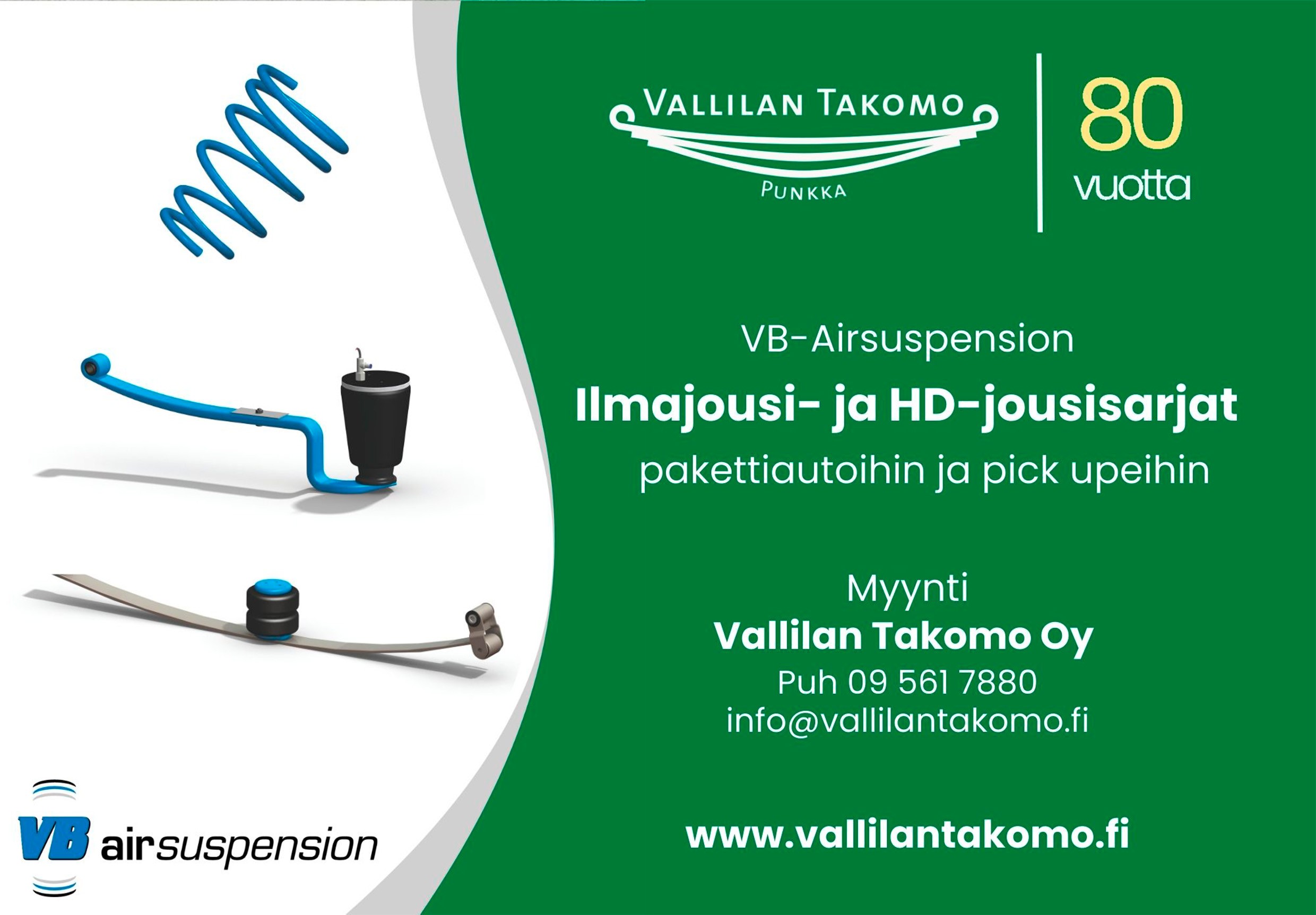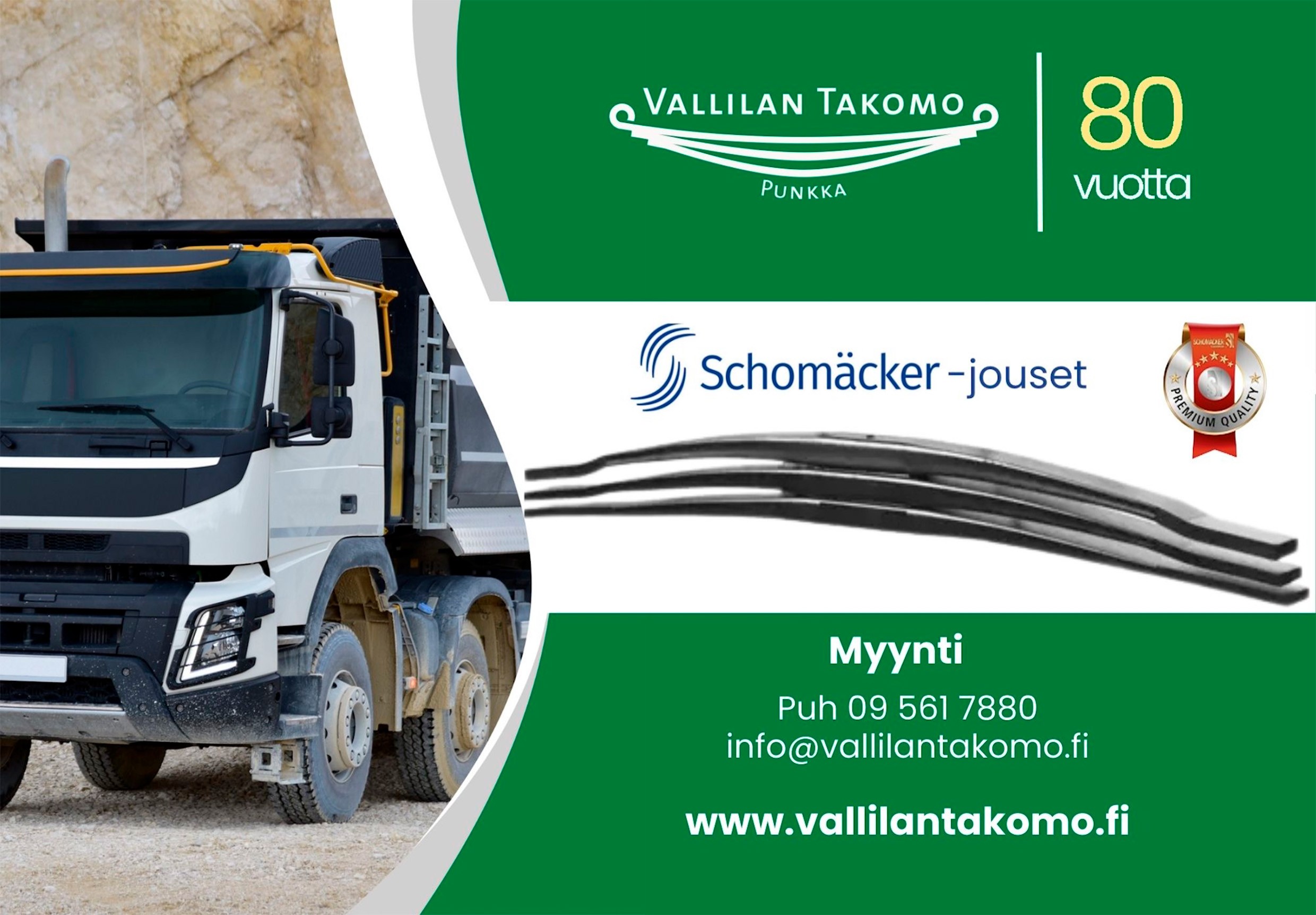During the tests, the all-electric E-Transit took on challenging winter driving conditions in Michigan, US; simulated extreme heat, cold and altitude in Ford’s Environmental Test Chamber in Cologne, Germany; and the giant potholes and rough road surfaces at the company’s Lommel Proving Ground in Belgium.
The new all-electric version of Ford E-Transit van had to face a series of extreme climate and durability testing to check the vehicle’s resistance under very harsh working conditions. In only 12 weeks, the E-Transit had to face a punishing testing regime designed to recreate the effects of a lifetime of intensive customer use ahead of going on sale, early next year.

Ford E-Transit: testing in Europe and the US
During the tests, the all-electric E-Transit took on challenging winter driving conditions in Michigan, US; simulated extreme heat, cold and altitude in Ford’s Environmental Test Chamber in Cologne, Germany; and the giant potholes and rough road surfaces at the company’s Lommel Proving Ground in Belgium. The video below shows the van working in some of these challenging environments.
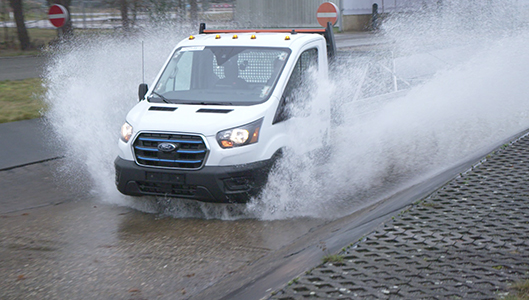
Really cold and extremely hot environments
The no-compromises approach recreates the effects of more than 240,000 kilometres of driving – or a decade of hard work – for customers operating in the most arduous situations.
Engineers in charge of Ford’s Environmental Test Chamber refined the all-electric powertrain and cabin environment for performance and efficiency by subjecting E‑Transit to over 40 degrees Celsius for two weeks using 28 spotlights with 4,000-watt bulbs. E-Transit’s battery pack features liquid-cooling technology for optimum performance in extreme weather.

The van also had to prove it could function at -35 degrees Celsius – colder than a typical Siberian winter – and with a full load making the punishing climb to 2,500 metres, as high as Austria’s Grossglockner High Alpine Road, one of the highest paved roads in Europe.
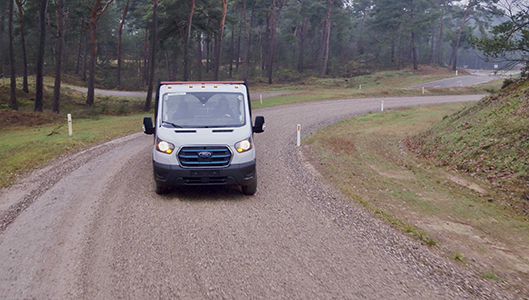
Next step: customers’ trials
Durability of the E-Transit’s battery pack, electric motor and unique rear suspension were tested by repeatedly driving the new model through mud and salt baths and through saltwater sprays, simulating winter roads and fords as well as testing the components’ corrosion resistance. The electric motor’s reliability was proven by running it continuously for 125 days.
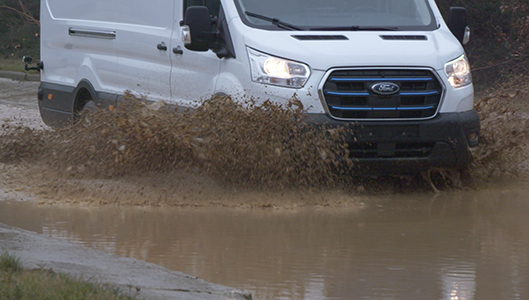
E-Transit’s readiness for work will be further proven through extensive customer trials in the supermarket, utility and last mile delivery sectors beginning later this year.
(Sustainable Truck & Van)





